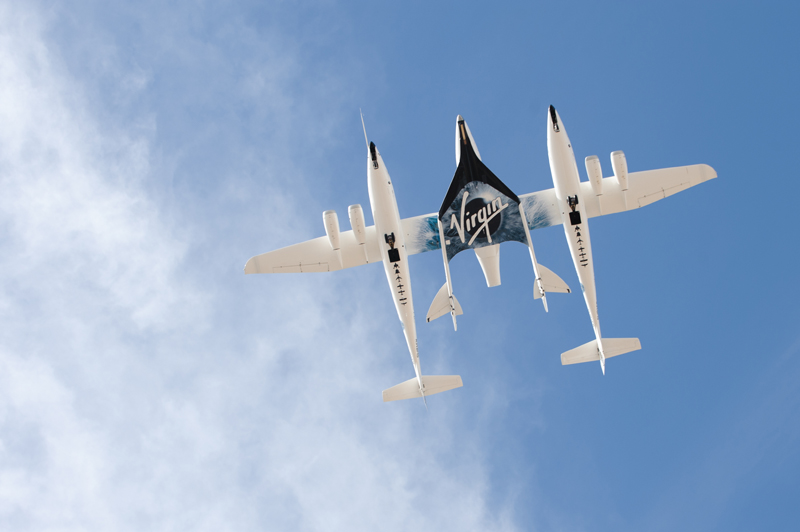Branson thinks that by being in space, people become more passionate about the planet. And he's planning on helping out cash-strapped NASA with its research, too.

Earlier this week, Virgin Galactic--the space travel arm of the Virgin Group--debuted the first-ever spaceport in New Mexico. Dubbed Spaceport America, the $209 million commercial spaceship terminal will begin suborbital flights for anyone with the $200,000 ticket fee soon after test flights are finished at the end of 2012. The commercial flights will be short previews of what it's like to be an astronaut, with a two and a half hour trip that includes views of Earth and five minutes of weightlessness.
Impressive as it may be, is Virgin Galactic environmentally sound? Fast Company caught up with Virgin Group CEO Richard Branson at the inauguration of Virgin America's new cabin trainer facility in Burlingame, Calif., to find out.
How do joyrides into space fit into Virgin's overall focus on sustainability?
First of all, our space company, because our technology is brand new and not 40 years old as NASA's was, we will be able to put someone into space for less than the environmental price of an economy class ticket from London to New York and back. So almost no carbon output at all. And I think that we might almost be able to, when we fly in a year's time, be zero-carbon. The way that we're heading towards that is that the profits we make from our airline businesses we invest in clean fuels.
On top of that, we can put satellites into space for almost no carbon output because we're launching them from 60,000 feet rather than land-based satellite launches. So we definitely will bring the carbon footprint of space travel down quite dramatically. The building we just built in New Mexico is LEED certified, and every single thing that happens there was done with the environment in mind.
Will NASA use your spacecraft at all?
Yes. NASA won't have any more spaceships going to space for a few years, and they started doing contracts with Virgin Galactic.
So there will be scientific expeditions on Virgin Galactic?
There will be a lot of scientific expeditions and quite a lot of environmental scientific expeditions to try and work out what's going on in the ozone layer and to try to deal with global warming skeptics, to try to prove it conclusively. I mean, it's already in my opinion being proved, but the more information that one can bring back to prove that we have a problem, the better.
I spoke to someone recently who argued that sending regular citizens into space will make them care more about the planet because they can actually see it from up above. Do you agree with that?
Well, it's certainly happened with the 450 people who have been into space. I mean, they've all come back having seen this beautiful Earth, very committed to protecting it. And I genuinely expect that to be the case.
On a semi-related note, I know that Virgin has been a leader in the biofuel space (on regular aircraft). Why do you think the rest of the industry has been slower to catch on?
When we did our first biofuel test flight, the head of British Airways put out a press release saying it was just a publicity stunt and a complete waste of time. He was mistaken and, fortunately, since then he's changed his mind and invested a lot of money in [biofuels]. I think Virgin is at the cutting edge of new things, and we like to think that where we lead, others follow. I wish a lot more airlines were investing in this area, but at least some are coming this way. It would be wise for them to do it. Not just because of global warming, but also because we are fast running out of regular oil in the world. So the sooner we can come up with alternative fuels, the better.
[Images: Homepage image: Flickr user D@LY3D; Post image: Spaceport America]
Reach Ariel Schwartz via Twitter or email.